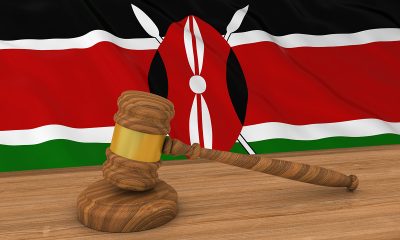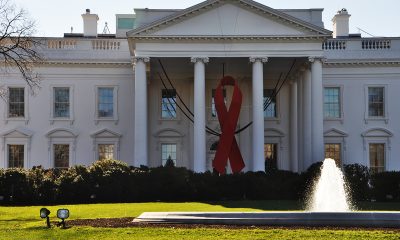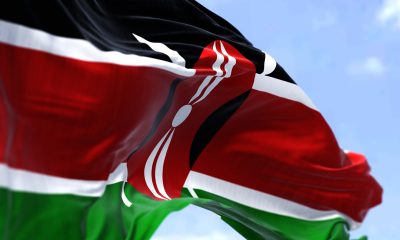Africa
Kenyan Supreme Court dismisses challenge to ruling that allowed LGBTQ group to register
Opposition MP Peter Kaluma was not part of original case
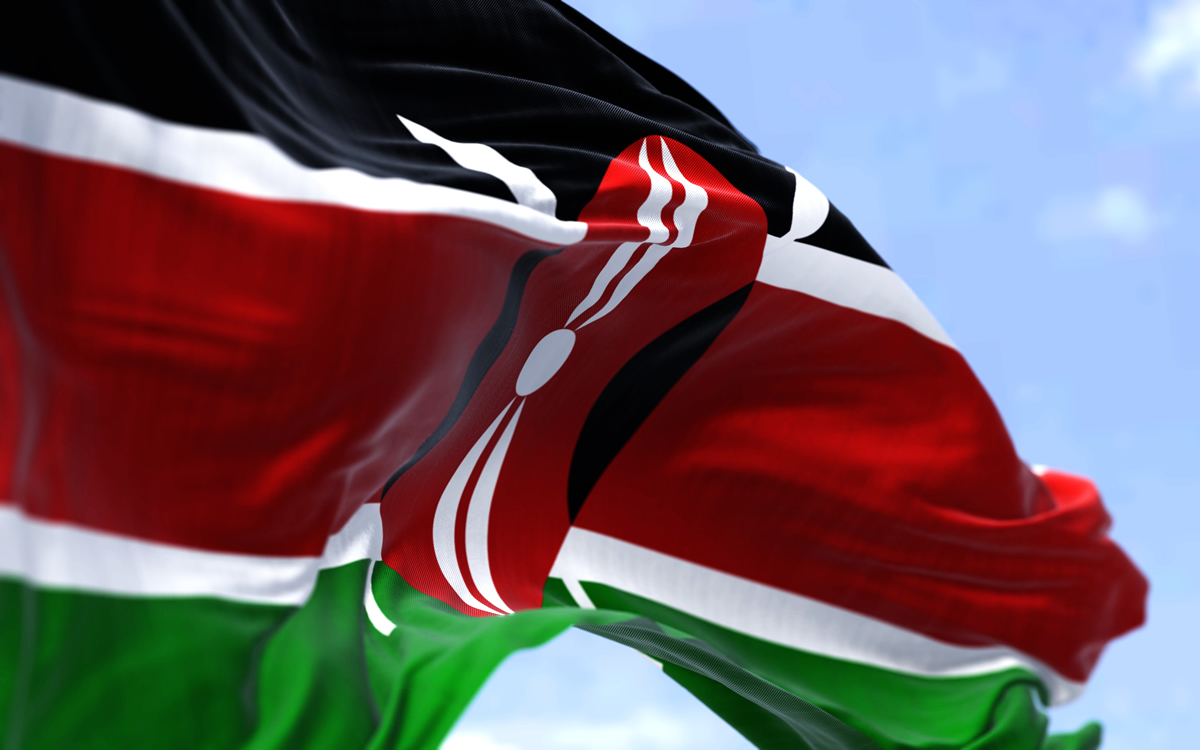
Kenya’s highest court on Tuesday dismissed a challenge to its February ruling that allowed the National Gay and Lesbian Human Rights Commission to register as a non-governmental organization.
The Supreme Court established the petitioner, opposition MP Peter Kaluma, is not an aggrieved party to its ruling since he was never involved in the case under rules that govern case hearings.
Kenya’s NGO Coordinating Board refused to register NGLHRC for more than a decade on grounds that it promotes same sex behavior, which the country’s penal code criminalizes.
The February ruling sparked heated criticism from Kenyans, clerics and politicians against the Supreme Court judges and demanded it be reversed. The decision prompted Kaluma, who is a fierce critic of homosexuality, to challenge it in March and demand the term “sex” be redefined to exclude same sex practices.
The MP has sponsored a stiffer anti-homosexuality bill that awaits introduction in the House of Representatives.
The Parliamentary Budget Office has already considered the bill’s financial costs to the government. The measure is currently pending before the Social Protection Committee, which will consider its implications for Kenyans.
The Social Protection Committee was to consider the bill within a month as House rules requires, but the period is now three months. Kaluma has confirmed to the Washington Blade that he wrote to National Assembly Speaker Moses Wetangula two weeks ago to complain about the committee’s delay.
While challenging the Supreme Court’s ruling, Kaluma in his petition argued it misinterpreted the term “sex” under Article 27 (4) of the Kenyan Constitution by “referring also to sexual orientation of any gender, whether heterosexual, lesbian, gay, intersex or otherwise” not to be discriminated based on sexual identity.
Kaluma claimed the court’s ruling “usurped the sovereign power of the people” and it was “obtained through fraud, deceit and misrepresentation of facts” by the NGLHRC defendants, which are some of the grounds the court can consider when it reviews its decision. The court, however, dismissed his petition because it failed to substantiate the claims and he was not a party to the case when it was heard and when the judges issued their ruling.
“The court cannot entertain an application for review of its judgment filed by an applicant who was not a party to the proceedings as this goes to the root of the matter and sanctity of the already determined suit which was contested by the parties,” court noted.
The ruling cited Article 163 of the constitution and subsequent procedural laws that allows the court to only consider a challenge of its ruling from an aggrieved party to the case.
Eric Gitari, who is NGLHRC’s former executive director, also filed a motion in opposition to Kaluma’s petition on grounds that “it is frivolous and without merit” because he wasn’t a litigant in the case. Gitari had also warned the court against entertaining the petition for being “procedurally irregular” and that it would undermine the court’s authority and the finality of its proceedings.
Anti-LGBTQ crackdown continues, MPs challenge PEPFAR funding
Although the court’s latest verdict affirming its initial decision for NGLHRC to be registered as an organization is a reprieve for Kenya’s LGBTQ community, all eyes are now on Attorney General Justin Muturi. He has vowed to challenge the NGLHRC ruling on behalf of the government.
Muturi’s anticipated move to have the judges review the ruling is part of efforts to crackdown on consensual same-sex sexual relationships the constitution does not recognize and Section 162 of the penal code outlaws.
A group of 10 Kenyan MPs and religious leaders in June in a letter to the U.S. Congress said President’s Emergency Plan for AIDS Relief funding to Kenya no longer serves its original purpose of fighting HIV/AIDS because it supports homosexuality and abortion. The letter — titled PEPFAR and African Values — went to several members of the U.S. House of Representatives and the U.S. Senate.
“We wrote that letter to the U.S. Congress not to stop PEPFAR funding to Kenya, but to demand the initiative to revert to its original mission without conditioning it to also supporting LGBTQ as human rights,” reads the letter that Kaluma signed.
Kaluma called on Congress to pressure the Biden-Harris administration to reverse policies and executive orders that condition U.S. funding to developing countries with recognition of LGBTQ and intersex people against what the MP said is the will and cultural beliefs of beneficiary nations.
Kenya expects to receive more than $341 million in PEPFAR funding for the 2023-24 financial year. The current funding period ends on Sept. 30.
Republicans last month seized upon the letter addressed to Congress and demanded the suspension of PEPFAR funding to Kenya for the upcoming fiscal year. Some Republican lawmakers have also sought to stop the U.S. Agency for International Development from funding LGBTQ and intersex rights efforts around the world.
Egypt
Iran, Egypt object to playing in Seattle World Cup ‘Pride Match’
Game to take place on June 26

Iran and Egypt have objected to playing in a “Pride Match” that will take place in Seattle during the 2026 World Cup.
The Egyptian Football Association on Tuesday said it told FIFA Secretary General Mattias Grafström in a letter that “it categorically rejects holding any activities related to supporting (homosexuality) during the match between the Egyptian national team and Iran, scheduled to be held in Seattle, USA, on June 26, 2026, in the third round of the group stage of the 2026 World Cup.” Football Federation Islamic Republic of Iran President Mehdi Taj told ISNA, a semi-official Iranian news agency that both his country and Egypt “protested this issue.”
The 2026 World Cup will take place in the U.S., Canada, and Mexico. The draw took place at the Kennedy Center on Dec. 5.
Iran is among the handful of countries in which consensual same-sex sexual relations remain punishable by death.
The State Department’s 2023 human rights report notes that while Egyptian law “did not explicitly criminalize consensual same-sex sexual activity, authorities regularly arrested and prosecuted LGBTQI+ persons on charges including ‘debauchery,’ prostitution, and ‘violating family values.’” Egyptian authorities “also reportedly prosecuted LGBTQI+ individuals for ‘misuse of social media.’”
“This resulted in de facto criminalization of same-sex conduct and identity,” notes the report.
The 2024 human rights report the State Department released earlier this year did not include LGBTQ-specific references.
Soccer has ‘unique power to unite people across borders, cultures, and beliefs’
The June 26 match between Iran and Egypt coincides with Seattle Pride. The Washington Post reported the Seattle FIFA World Cup 2026 Local Organizing Committee decided to hold the “Pride Match” before last week’s draw.
“As the Local Organizing Committee, SeattleFWC26’s role is to prepare our city to host the matches and manage the city experience outside of Seattle Stadium,” said SeattleFWC26 Vice President of Communications Hana Tadesse in a statement the committee sent to the Washington Blade on Wednesday. “SeattleFWC26 is moving forward as planned with our community programming outside the stadium during Pride weekend and throughout the tournament, partnering with LGBTQ+ leaders, artists, and business owners to elevate existing Pride celebrations across Washington.”
“Football has a unique power to unite people across borders, cultures, and beliefs,” added Tadeese. “The Pacific Northwest is home to one of the nation’s largest Iranian-American communities, a thriving Egyptian diaspora, and rich communities representing all nations we’re hosting in Seattle. We’re committed to ensuring all residents and visitors experience the warmth, respect, and dignity that defines our region.”
The 2034 World Cup will take place in Saudi Arabia.
Consensual same-sex sexual relations remain punishable by death in the country. The 2022 World Cup took place in neighboring Qatar, despite concerns over the country’s anti-LGBTQ rights record.
Eswatini
PEPFAR delivers first doses of groundbreaking HIV prevention drug to two African countries
Lenacapavir now available in Eswatini and Zambia.
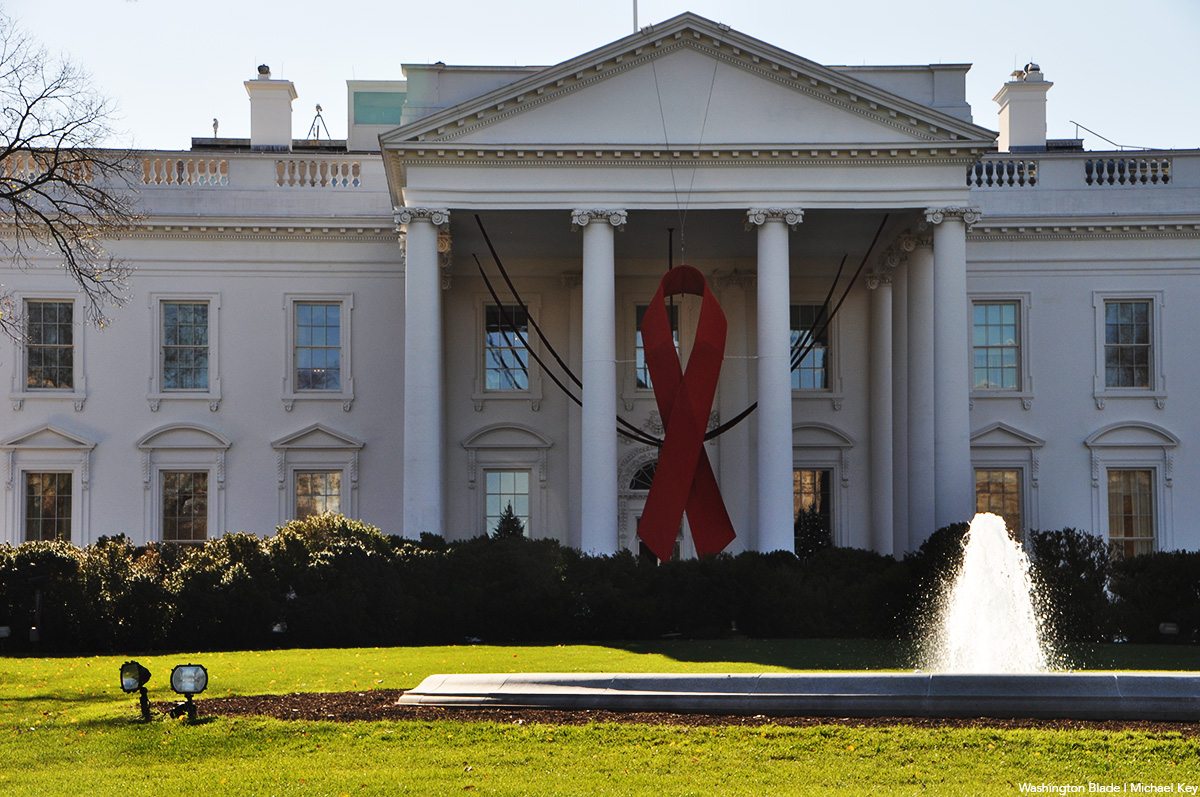
The State Department on Tuesday announced PEPFAR has delivered the first doses of a groundbreaking HIV prevention drug to two African countries.
The lenacapavir doses arrived in Eswatini and Zambia.
The State Department in September unveiled an initiative with Gilead Sciences to bring lenacapavir “to market in high-burden HIV countries.”
Lenacapavir users inject the drug twice a year.
The State Department in its September announcement noted everyone who participated in Gilead’s clinical trials remained HIV negative. It also said lenacapavir “has the potential to be particularly helpful for pregnant and breastfeeding mothers, as it safely protects them during and after pregnancy to prevent mother-to-child transmission.”
“In our new America First Global Health Strategy, the Department of State is establishing a first-of-its-kind innovation fund to support American-led research, market-shaping, and other dynamic advancements in global health,” said PEPFAR on Tuesday in a press release.
“The arrivals of the first doses of lenacapavir in Eswatini and Zambia mark an important milestone in HIV prevention and reflect our commitment to supporting communities with the greatest need,” added Gilead CEO Daniel O’Day. “For the first time, a new HIV medicine is reaching communities in sub-Saharan Africa in the same year as its U.S. approval.”
The September announcement came against the backdrop of widespread criticism over the Trump-Vance administration’s reported plans to not fully fund PEPFAR and to cut domestic HIV/AIDS funding. The Washington Blade has previously reported PEPFAR-funded programs in Kenya and other African countries have been forced to curtail services or even close because of U.S. funding cuts.
Botswana
The first courageous annual Palapye Pride in Botswana
Celebration was a beginning rooted in courage, community, and love.
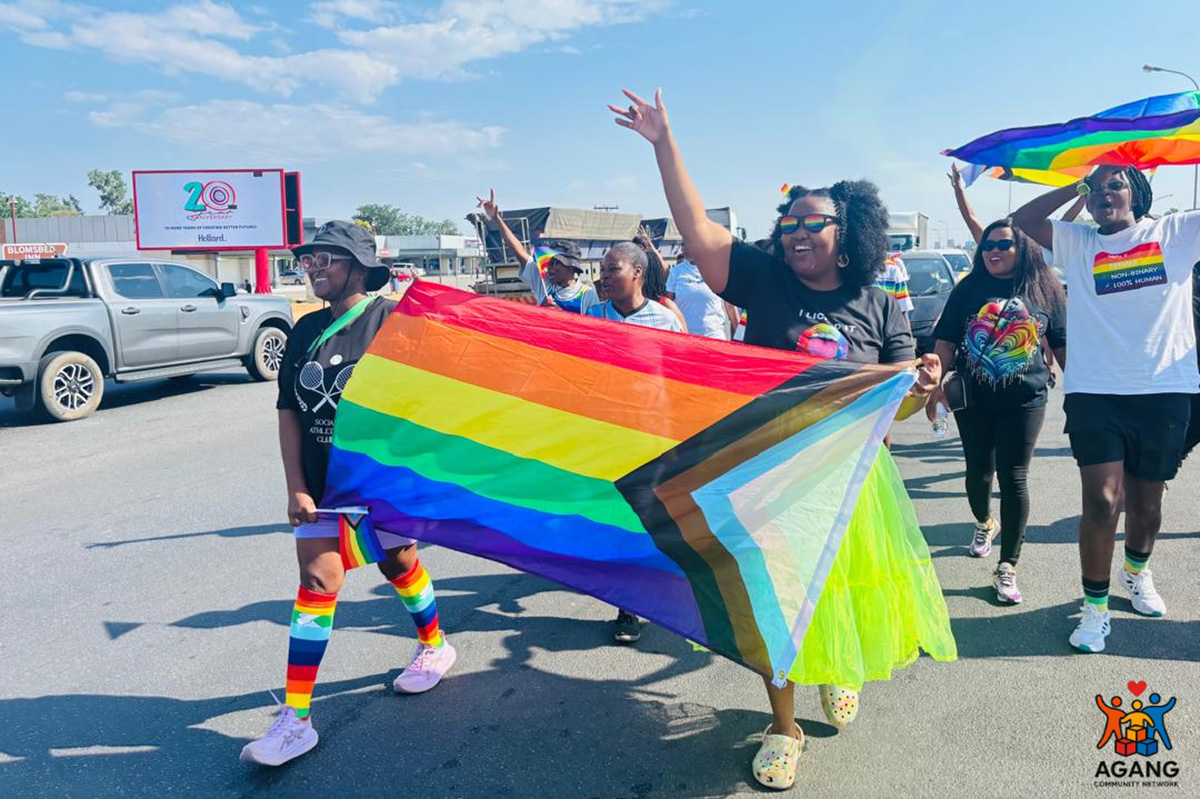
“When the sun rose on 1 Nov., 2025, Pride morning in Palapye, the open space where the march was scheduled to begin was empty. I stood there trying to look calm, but inside, my chest felt tight. I was worried that no one would come. It was the first-ever Pride in Palapye, a semi-urban village where cultural norms, religious beliefs, and tradition are deeply woven into everyday life.
I kept asking myself if we were being naive. Maybe people weren’t ready. Perhaps fear was going to win. For the first 30 minutes, it was me, a couple of religious leaders and a handful of parents. That was it. The silence was loud, and every second felt like it stretched into hours. I expected to see the queer community showing up in numbers, draped in color and excitement. Instead, only the wind was moving.
But slowly, gently, just like courage often arrives, people started to show up with a rainbow flag appearing from behind a tree and a hesitant wave from someone standing at a distance.
That’s when I understood that people weren’t late, just that they were afraid. And their fear made sense. Showing up openly in a small community like Palapye is a radical act. It disrupts silence. It challenges norms. It forces visibility. Visibility is powerful, but it is never easy. We marched with courage, pulling from the deepest parts of ourselves. We marched with laughter that cracked through the tension. We marched not because it was easy, but because it was necessary,” narrates activist Seipone Boitshwarelo from AGANG Community Network, which focuses on families and friends of LGBTIQ+ people in Botswana. She is also a BW PRIDE Awards nominee for the Healing and Justice Award, a category which acknowledges contributions to wellness, mental health, and healing for the LGBTIQ+ community across Botswana.
Queer Pride is Botswana Pride!
Pride is both a celebration and a political statement. It came about as a response to systemic oppression, particularly the criminalization and marginalization of LGBTIQ+ people globally, including in Botswana at some point. It is part of the recognition, equality, and assertion of human rights. It also reminds us that liberation and equality are not automatically universal, and continued activism is necessary. A reminder of the famous saying by Fannie Lou Hamer, “Nobody is free until everybody’s free.”
The 2023 Constitutional Review process made one thing evident, which is that Botswana still struggles to acknowledge the existence of LGBTIQ+ people as full citizens. Instead of creating a democratic space for every voice, the process sidelined and erased an entire community. In Bradley Fortuin’s analysis of the Constitutional review and its final report, he highlighted how this erasure directly contradicts past court decisions that explicitly affirmed the right of LGBTIQ+ people to participate fully and openly in civic life. When the state chooses to ignore court orders and ignore communities, it becomes clear that visibility must be reclaimed through alternative means. This is why AGANG Community Network embarked on Palapye Pride. It is a radical insistence on belonging, rooted in community and strengthened through intersectionality with families, friends, and allies who refuse to let our stories be erased.
Motho ke motho ka batho!
One of the most strategic decisions made by the AGANG Community Network was to engage parents, religious leaders, and local community members, recognizing their value in inclusion and support. Thus, their presence in the march was not symbolic, but it was intentional.
Funding for human rights and LGBTIQ+ advocacy has been negatively impacted since January 2025, and current funding is highly competitive, uneven and scarce, especially for grassroots organizations in Botswana. The Palapye Pride event was not funded, but community members still showed up and donated water, a sound system, and someone even printed materials. This event happened because individuals believed in its value and essence. It was a reminder that activism is not always measured in budgets but in willingness and that “motho ke motho ka batho!” (“A person is a person because of other people!”).
Freedom of association for all
In March 2016, in the the Attorney General of Botswana v. Rammoge and 19 Others case, also known as the LEGABIBO registration case, the Botswana Court of Appeal stated that “members of the gay, lesbian, and transgender community, although no doubt a small minority, and unacceptable to some on religious or other grounds, form part of the rich diversity of any nation and are fully entitled in Botswana, as in any other progressive state, to the constitutional protection of their dignity.” Freedom of association, assembly, and expression is a foundation for civic and democratic participation, as it allows all citizens to organize around shared interests, raise their collective voice, and influence societal and cultural change, as well as legislative reform.
The Botswana courts, shortly after in 2021, declared that criminalizing same-sex sexual relations is unconstitutional because they violated rights to privacy, liberty, dignity, equality, and nondiscrimination. Despite these legal wins, social stigma, cultural, and religious opposition continue to affect the daily lived experience of LGBTIQ+ people in Botswana.
The continuation of a declaration
AGANG Community Network is committed to continuing this work and creating safe and supportive spaces for LGBTIQ+ people, their families, friend, and allies. Pride is not just a day of fun. It is a movement, a declaration of queer existence and recognition of allyship. It is healing and reconciliation while amplifying queer joy.
Seipone Boitshwarelo is a feminist, activist, social justice healer, and founder of AGANG Community Network. Bradley Fortuin is a social justice activist and a consultant at the Southern Africa Litigation Center.

